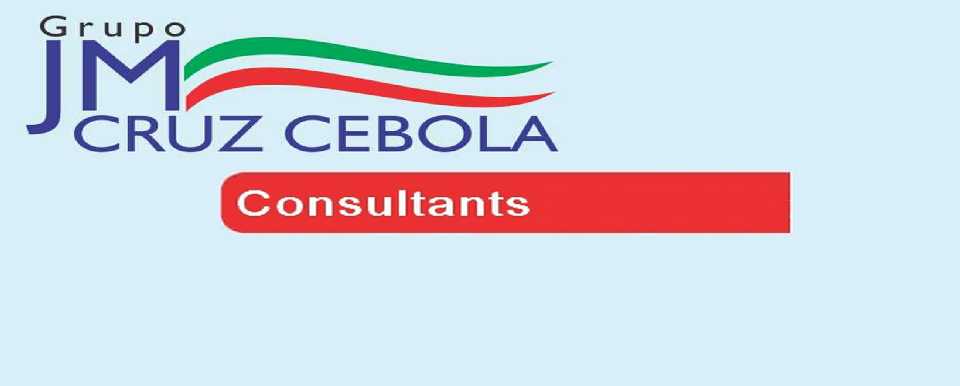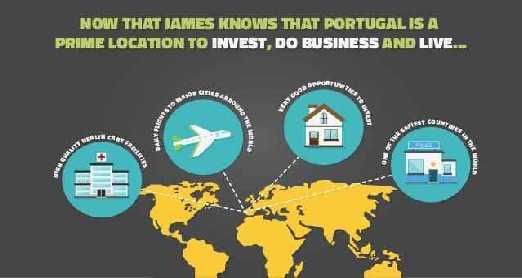
 HomeAnterior / Back Contactos / Contacts
HomeAnterior / Back Contactos / Contacts
Investing in Portugal Property - An Overview
THE PORTUGAL REAL ESTATE MARKET
In May 2013 the OECD has listed Portugal as one of the top countries in the world to buy and own real estate. According to this organisation, Portuguese real estate is undervalued and the price-
In an article published on 24th January 2017, titled
The property market in Portugal is highly developed, has a high quality of supply in all sectors and a considerable presence of foreign occupiers. The market is highly transparent and counts various international consultants and agents. Finally, it should be noted that the laws governing rental agreements have just been made much more liberal and that evicting a tenant that fails to pay the rent has been made much more expedite.
A highly developed and transparent market
A high quality of supply in all sectors
A considerable presence of foreign occupiers
Various international consultants and agents
Property prices plunged by up to 30% since 2010 and have bottomed in 2013, with some signs of recovery starting now to emerge.
PROPERTY LOCATION
The best residential and commercial property location is in the Lisbon-
Lisbon is the main decision centre, most big companies’ headquarters being located in this city or its vicinity, and a major tourist magnet;
The Lisbon International Airport is the main hub for flights in and out of the country;
Most international schools are located in this region.
The second best residential property location is the Algarve, the southernmost region of Portugal, which also has an important airport, several international schools and top-
Excellent opportunities abound in the commercial property sector, mainly in car parks and office space (in 2011 Lisbon held the 6th position among European cities in terms of value for money of office space).
Rural property is also there for the grabs, sometimes at unbelievable low prices.
However, residential property remains the most popular property type, mainly due to the versatility of its use, which can include private use as well as short or long term rentals.
PROPERTY SEARCH AND NEGOTIATION
In order to conduct your property search, you have basically two options: you either do it yourself, starting with an internet search and then contacting the most promising estate agents; or you hire a search agent to do it, the main advantages of which being a deep knowledge of the market and having access to unlisted properties.
As regards the negotiation of the purchase, the same two options are open to you: you either do it yourself, starting typically with the estate agent who is brokering the sale; or you hire a buying agent (generally your search agent if you had one) to do it for you, the main advantages of which lying in his/her deep knowledge of the market, ability to anticipate potential problems with a given property and recommend remedies, and, last but not the least, a transaction experience that will as a rule result in a lower price, the achievable discount being as a rule a larger amount than that of his/her fees.
PROPERTY PURCHASE & PROPERTY TAXES
Typically you sign a promissory contract and make a down payment, after which you grant someone (normally your lawyer) a power of attorney for him/her to complete the exchange of final contracts and the property conveyance once the necessary funds have been transferred to Portugal and all the paperwork is in order
Besides legal fees, the following taxes are payable by a property buyer: one-
o On a price of up to €92,407 the tax is 1%
o On a price from €92,407 to €126,403 the tax is 2% less €924.07
o On a price from €126,403 to €172,348, the tax is 5% less €4,716.16
o On a price from €172,348 to €287,213, the tax is 7% less €8,163.12
o On a price from €287,213 to €550,836, the tax is 8% less €11,035.25
o On a price upwards of €550,836, the tax is 6%
The conveyance registration is subject to small charge, typically €375 per property.
Municipal annual tax ("IMI") is payable annually by who owns the property as at 31 December at a rate of between 0.3% and 0.5% on the tax office valuation of an urban property (different rates apply to rural property).
PROPERTY MANAGEMENT
We provide property management services, including the following: managing the refurbishment and/or decoration of your property; finding tenants, negotiating the rental agreements, checking tenants in and out, and collecting deposits and rent; managing property repairs and maintenance; handling utility and service contracts and payments; and handling property tax payments.
Management charges vary according to property type, investment legal structure, rental type, etc., As a rule of thumb, the management charges for long term rentals (> 1 year) will vary between 10 and 15% of the gross income, while those for short term rentals (< 1 year) will vary between 20 and 25% of the gross property income (or up to 40% in the case of rentals by the day, if to include check-
TAXATION OF RENTAL INCOME
Net rental income earned by a non resident landlord (whether individual or corporate) or by a resident individual landlord is calculated for tax purposes as gross income less properly documented direct costs, except for financial costs (which are not tax deductible). This net rental income is taxed at 28% in the hands of a non resident, and, in the hands of the individual resident landlord, it is included in the total taxable income and taxed at progressive rates.
The taxation of short-
For the resident corporate landlord (either a local business or the local branch of a non-
TAXATION OF CAPITAL GAINS
Total tax exemption is granted to the capital gains made on the disposal of a property by an individual, if the property is his/her main residence and the proceeds are used to purchase another main residence in the EU.
Otherwise, net capital gains are taxed at a rate of 28% in the hands of a non resident seller (whether individual or corporate); and 50% of the net capital gains are (a) included in a resident individual's total taxable income and taxed at progressive rates; (b) included in a resident business's taxable profit calculation, the net profit being currently taxed at 21% plus a municipal surcharge of up to 1.5%. In the latter case, the 50% exemption is subject to the proceeds being reinvested within 2 years.
INVESTMENT STRUCTURING
The best property investment structure depends on your intentions:
Just to own a residence in Portugal, the most practical and cost-
But if you intend to invest a sizeable amount in rental real estate, then the best investment structure could be an EU company (possibly, for cost-
-
tax
-
-
free purchase for the buyer
URBAN REHABILITATION INCENTIVES PROGRAMME IN PORTUGAL
There are various official incentives in Portugal aimed at the rehabilitation of urban areas, buildings and even apartments. Such rehabilitation is encouraged by a legal framework which, among other measures, provides for less red tape, great tax breaks and finance schemes.
